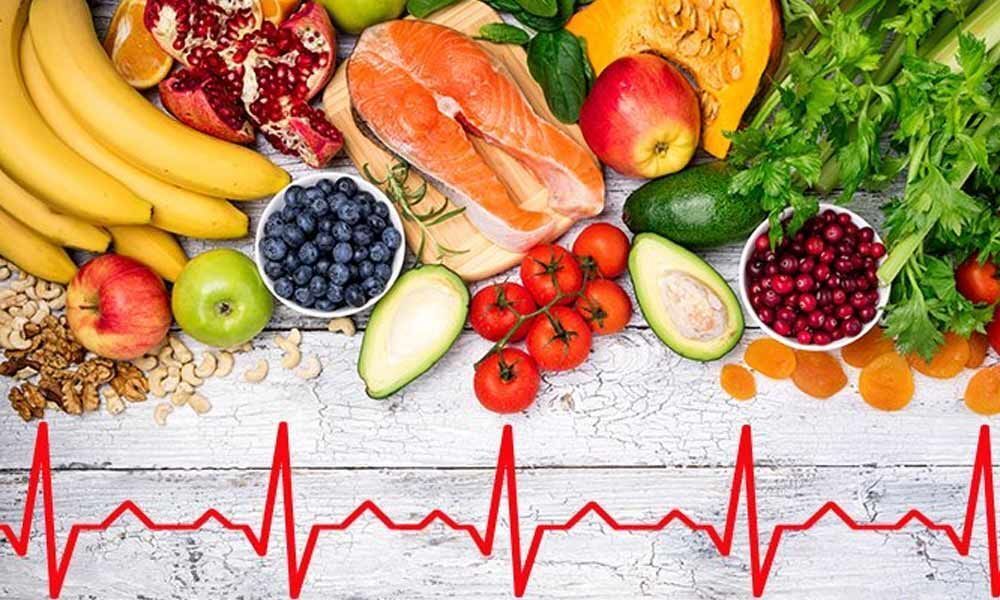Reduce risk of heart disease with healthy diet

Everyone knows that achieving or maintaining healthy body weight is one key to preventing cardiovascular disease. However, researchers don't agree that the best way to achieve that goal is by eliminating certain nutrients from the diet.
Washington: Everyone knows that achieving or maintaining healthy body weight is one key to preventing cardiovascular disease. However, researchers don't agree that the best way to achieve that goal is by eliminating certain nutrients from the diet.
In the study published in the journal, 'International Journal of Cardiology,' researchers at Beth Israel Deaconess Medical Center (BIDMC) examined the effects of three healthy diets emphasising different macronutrients - carbohydrates, proteins, or unsaturated fats - on a biomarker that directly reflects heart injury.
Using highly specific tests, the team found that all three diets reduced heart cell damage and inflammation, consistent with improved heart health.
"It's possible that macronutrients matter less than simply eating healthy foods," said corresponding author Stephen Juraschek, MD, PhD, Assistant Professor of Medicine at BIDMC and Harvard Medical School.
"Our findings support flexibility in food selection for people attempting to eat a healthier diet and should make it easier. With the average American eating fewer than two servings of fruit and vegetables a day, the typical American diet is quite different from any of these diets, which all included at least four to six servings of fruits and vegetables a day," added Juraschek.
Researchers analysed stored blood samples from 150 participants of the Optimal Macronutrient Intake Trial to Prevent Heart Disease (OmniHeart) trial, a two-center, inpatient feeding study conducted in Boston and Baltimore between April 2003 and June 2005.
The average age among the study participants was 53.6 years, while 55 per cent were African American and 45 per cent were women.
The participants - all of whom had elevated blood pressure, but were not yet taking medications to control hypertension or cholesterol - were fed each of three diets - emphasising carbohydrates, protein, or unsaturated fat - for six weeks with feeding periods separated by a washout period.
The diets were: a carbohydrate-rich diet similar to the well-known DASH diet, with sugars, grains, and starches accounting for more than half of its calories; a protein-rich diet with 10 per cent of calories from carbohydrates replaced by protein; and an unsaturated fat-rich diet with 10 percent of calories from carbohydrates replaced by the healthy fats found in avocados, fish and nuts.
All three diets were low in unhealthy saturated fat, cholesterol, and sodium while providing other nutrients at recommended dietary levels. The research team looked at the effects of each diet on biomarkers measured at the end of each dietary period compared to baseline and compared between diets.
All three healthy diets reduced heart injury and inflammation and acted quickly within a 6-week period.
However, changing the macronutrients of the diet did not provide extra benefits. This is important for two reasons: First, the effects of diet on heart injury are rapid and cardiac injury can be reduced soon after adopting a healthy diet.
Second, it is not the type of diet that matters for cardiac injury (high or low fat, high or low carb), but rather the overall healthfulness of the diet.
"There are multiple debates about dietary carbs and fat, but the message from our data is clear: eating a balanced diet rich in fruits and vegetables, lean meats, and high in fiber that is restricted in red meats, sugary beverages, and sweets, will not only improve cardiovascular risk factors but also reduce direct injury to the heart," said Juraschek.
"Hopefully, these findings will resonate with adults as they shop in grocery stores and with health practitioners providing counsel in clinics throughout the country," he concluded.








